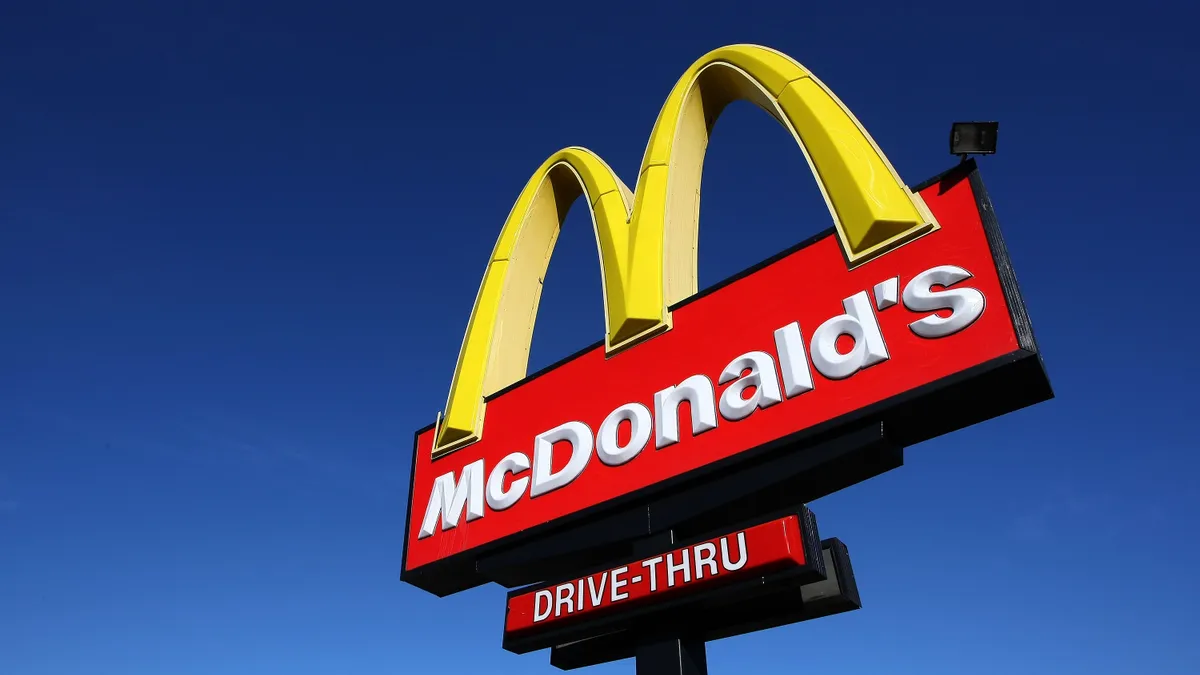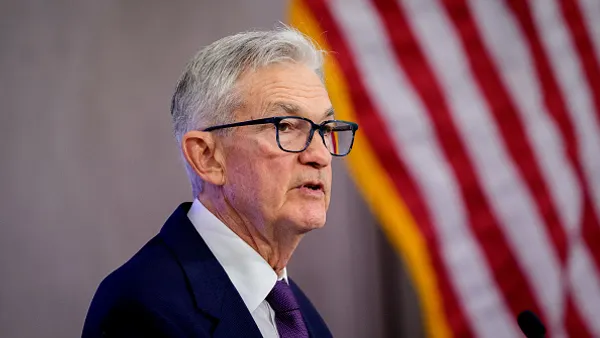Dive Brief:
- McDonald’s CEO Chris Kempczinski said Monday on the company’s third-quarter earnings call that there was a “slight dip” in the fast-food giant’s Q3 traffic as he said low-income consumers were feeling more pressure from higher interest rates and inflationary pricing even as CFO Ian Borden said the company saw market share gains related to wealthier customers choosing the company’s Big Macs and other items over more expensive alternatives.
- “We continue to gain share with both the middle- and higher-income consumers,” Borden said, asserting that the company has a leading position in terms of the affordable value it offers, according to a transcript of the call. “We're certainly partly benefiting from the trade down from more expensive alternatives within those kinds of income or segment levels.”
- The company reported its net income rose 17% to $2.31 billion during the quarter ended Sept. 30 compared to $1.98 billion in the year-earlier period. The company said it benefited from strong average check growth driven by menu price increases.
Dive Insight:
Financial executives of both small and big companies like Chicago-based McDonald’s have been battling to offset rising wage and ingredient costs by raising prices without alienating or losing customers.
The company appears to be pursuing the same strategic tack that it took last year when it anticipated double digit menu price hikes for the year, CFO Dive previously reported.
On Monday Borden said he believed that the company’s average pricing increase for the year would be just over 10%, but for the first time in a number of quarters he said that the rate of rising prices had started to ease.
“I think that speaks to the fact, as we’ve spoken to before, that inflation is starting to come down,” Borden said on the call. “And of course, we expect pricing to come down kind of in line with how inflation is coming down.”
Separately, on the labor side of the equation higher wages in California will likely affect California McDonald’s franchisees, Kempczinski said. Although the CEO did not cite recently passed legislation specifically, last month California Gov. Gavin Newsom signed a $20 fast food minimum wage into law, Industry Dive sister publication Restaurant Dive reported. Under the law, the minimum wage at fast food restaurants that are part of brands with 60 or more units nationwide will rise to $20 an hour on April 1.
At this point, Kempczinski said it’s not clear how the wage law is going to affect pricing in California but he said it will certainly ding franchisee cash flow in the state in the short-term.“There will be a hit,” he said, adding he believes the company is in a better position than its competitors to weather the challenge.














